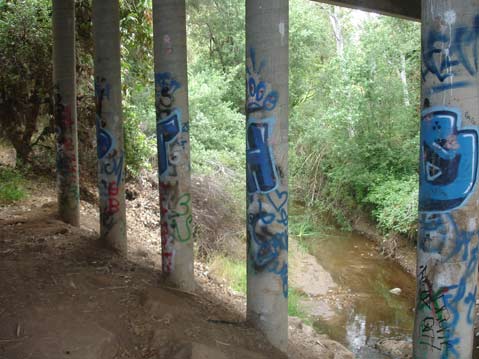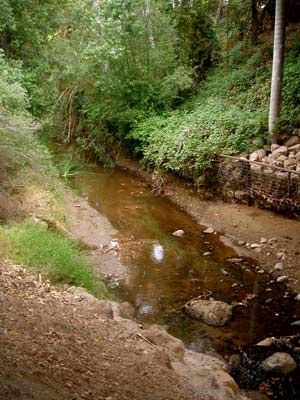Stream Team Comes Through
Powered by Volunteers

“You can never step in to the same river twice,” the philosopher Heraclitus once famously said. “An opportunity lost is lost forever.” No program better exemplifies support for this idea than Channelkeeper’s Stream Team. This project enlists volunteers from the community to participate in long-term, monthly water quality monitoring throughout the Goleta and Ventura watersheds.
The mission, according to Channelkeeper’s Ben Pitterle, is to “work on the water in our community, to monitor local waterways, restore aquatic ecosystems, advocate for clean water, enforce environmental laws, and educate and engage citizens in identifying and devising solutions to local water pollution problems.”
Stream Team invites everyone from the community to participate in the monitoring project the first Saturday and Sunday of each month. The team generally meets 10 a.m. at the K-Mart parking lot on Sundays in Santa Barbara, and at the Surfrider parking lot on Saturdays in Ventura.
Pitterle talked about the importance to the program of volunteer participation. The Goleta Stream Team has been operating since 2002, Pitterle said, and during that time has had “over 300 volunteers participate in the program, and monitor over 20 sites throughout seven streams and three wetlands in the Goleta Area. We have a similar program for the Ventura River Watershed that began in 2001, with almost 500 individual participants since that time.”

Peter Shao, a student from Dos Pueblos High School, has volunteered with Stream Team for more than three years, and has shown tremendous dedication to the monthly monitoring program. He waxed enthusiastic while waiting in the parking lot for the monitoring to begin one recent Sunday. “Stream Team keeps me updated on what is happening with Santa Barbara’s water quality,” Shao said, “and involved in the community.”
Once the team has tested all the designated stream sites, Channelkeeper scans the data for irregularities in the readings, looking for such things as high nitrate levels from agricultural runoff, and indicator bacteria that could evince raw sewage seeping into the waterway.
Without a monthly monitoring group like this, it would be very hard to pinpoint the origins of non-point pollution, meaning contamination carried into the streams from a variety of sources, via rainwater from city streets for example. The Stream Team also performs the very valuable service of informing the public, and government agencies, where major impairments are occurring in the county’s water systems.
“A couple of years ago,” Pitterle said, “Stream Team monitoring led to the eventual discovery of an illegal raw sewage discharge into Cieneguitas Creek.” The Stream Team “regularly finds and reports illegal dumping into creeks,” he said. “We also find that the biggest water quality problems we’ve identified in the Goleta Creeks are nutrient over-enrichment and high levels of indicator bacteria.”
As urbanization and agriculture spread, waterways typically face issues such as the channelization of streams, absence of native trees that provide shade for endangered species like the steelhead trout, jumps in indicator bacteria counts, and higher levels of nitrate levels leading to eutrophicated waterways, where algae and other boggish plants using so much of the water’s dissolved oxygen that other organisms are stifled. However, many initiatives for healthier streams in Santa Barbara are underway, as the public displays more concern for steelhead migration routes, and habitat restoration for endangered amphibians in the area.
At the end of the day, Channelkeeper hopes that programs like Stream Team can get the community to make a personal connection with the sites that are being impacted, and hopefully gain a new respect for the watershed they live in. “It’s important that people get dirty, get in the water, and spend some time enjoying our creeks,” Pitterle said, as he finished up the last water sample of his day. “Our goal is to create environmental stewards. So until they really experience it, no one cares.”
For more information on how to participate in Stream Team or about watershed conservation, please contact Ben Pitterle via email, Ben@sbck.org.



